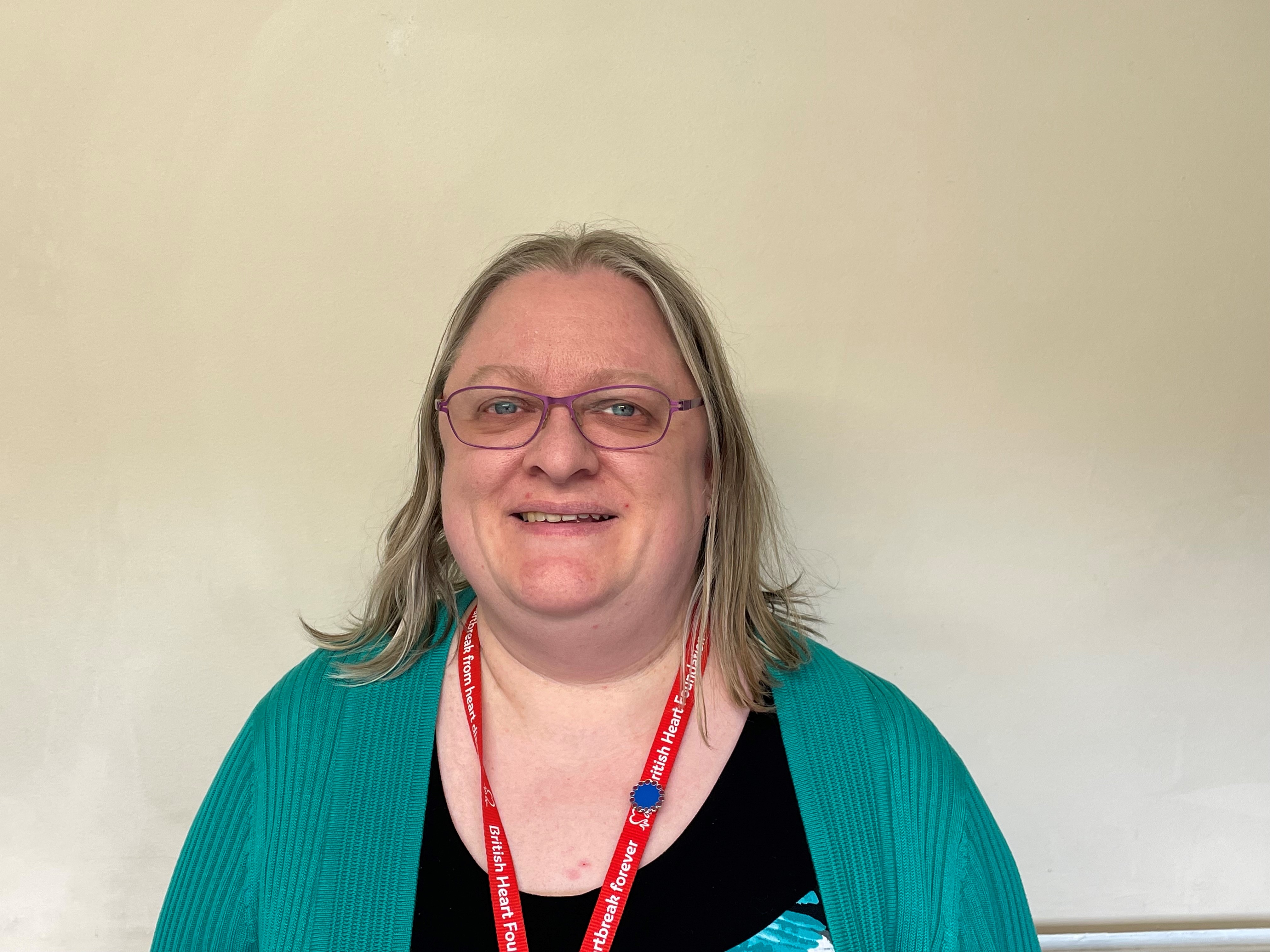Can you describe what you do day-to-day?
I’m the lead for cardiac rehabilitation at Royal Brompton and Harefield hospitals and no two days are the same! My role involves responsibility for the operational running of the cardiac rehabilitation department, staff development, and the service for patients.
We see a range of patients at Harefield, from people who have had heart attacks or heart surgeries, right up to complex patients who are so unwell they must stay in hospital as inpatients until they receive urgent heart transplants.
We also have many patients who regularly attend rehab as outpatients after having mechanical circulatory (artificial heart) devices implanted. The devices help circulate blood around the body in patients with severe heart failure.
Our role is to help patients recover from a cardiac event and help them lead a healthier life longer-term and lower their risk of having further heart problems. Our patients can range from young, in their 20s or late teens, to patients 90+ years young!
 No two patients are the same as everyone has different health problems and all will have had different exercise levels and lifestyles before an event. As well as exercise, we also help patients manage other lifestyle changes. For example, we run a stop smoking clinic and provide advice on diet and stress management.
No two patients are the same as everyone has different health problems and all will have had different exercise levels and lifestyles before an event. As well as exercise, we also help patients manage other lifestyle changes. For example, we run a stop smoking clinic and provide advice on diet and stress management.
On a typical day, in addition to my research, I work with the other amazing leads in our rehabilitation and therapies department to support the wider directorate and support new members of our team. On a particular day, you might find me covering clinics, for example when a colleague is on leave or a role is vacant, or developing and evaluating our service to patients. Developing the future workforce is also a key part of my role, so I also support students on placement.
What’s different or unique about the cardiac rehabilitation service at Harefield?
We are fortunate to have a reasonably sized team supported by our medical, nursing, and allied health professional colleagues. As a specialist tertiary centre, we receive more complex patients at Harefield, such as patients on a ventricular assist device (VAD), an implant that helps the heart pump blood through the body and we had one patient with a total artificial heart. With the wide range of conditions and people we treat, there is no chance of getting bored!
What do you like most about your job?
One of the main draws to Harefield is the staff and the specialist services offered. I first worked at Harefield Hospital in 2001 and, after leaving twice to pursue other opportunities, I came back for the third time in 2008! I am a physiotherapist by profession and worked in the inpatient team for several years before moving to cardiac rehab full time in 2008.
The work is always varied, and I love getting to be so innovative and help as many patients as possible.
Outside of work, I am involved in the wider cardiac rehabilitation community. I am on the executive committee of the Association of Chartered Physiotherapists in Cardiovascular Rehabilitation (ACPICR) and am President Elect for the British Association of Cardiovascular Prevention and Rehabilitation (BACPR), taking on the role as President next month. To be able to support the work of multidisciplinary professionals (including physiotherapists) working within cardiac rehabilitation is an honour and I look forward to a busy but productive couple of years!
I enjoy the teaching aspect of my role, both internally (at Harefield) and externally through delivering lectures at Brunel University and more nationally on the BACPR Heart Failure and the Part 2 (Advanced CR) course.
What’s the most challenging part of your job?
Over the past couple of years –it’s been the impact COVID-19 has had on our service, as all our patient activity was face-to-face (F2F) before then. When the F2F service had to stop in March 2020, we faced significant challenges in supporting patients.
In retrospect, it also gave us a unique opportunity to review the service we offer to patients and redesign it to improve the quality and effectiveness of all interventions, in line with national standards.
What is the best thing a patient has ever said to you?
We are privileged to interact with our patients over many weeks and support them through what can be one of the most challenging experiences of their lives.
The most fantastic feedback was in the early days of the pandemic. Initially, patients were so grateful to get follow-up phone calls and told us they felt like they hadn’t been forgotten, particularly those who lived alone during lockdowns. When we restarted our face-to-face service in July 2020, I’ve never seen patients happier to have their blood pressure checked or have an ECG (electrocardiogram – heart test) while exercising!
